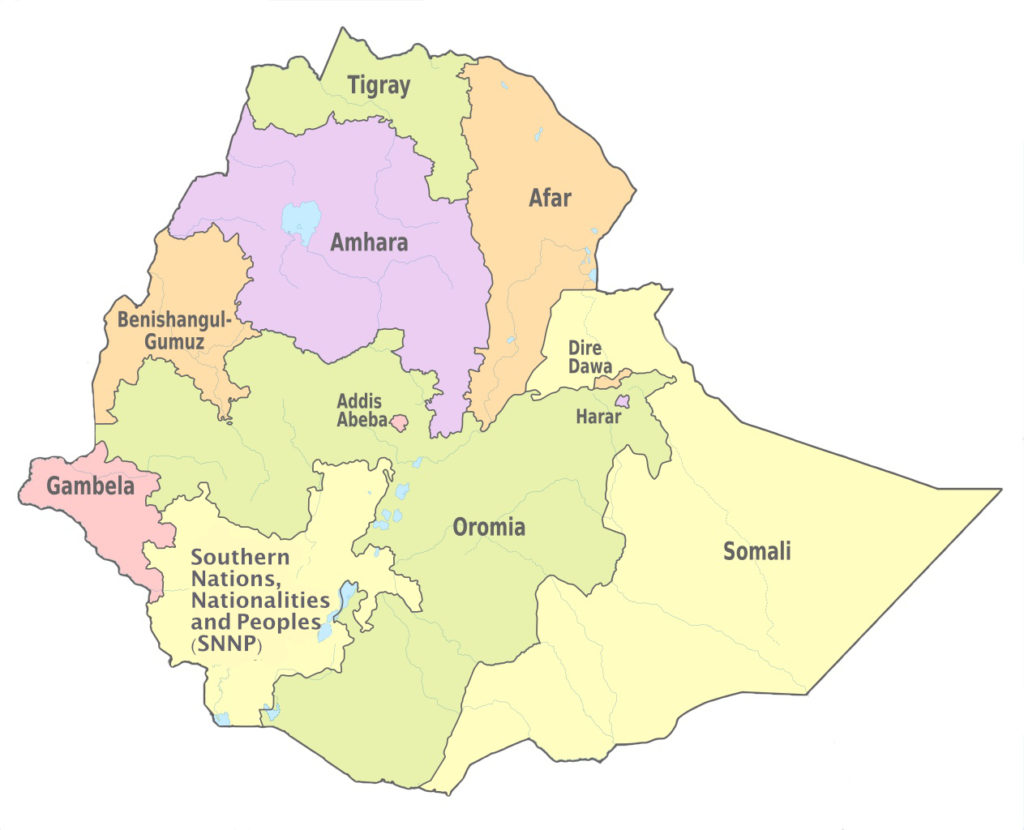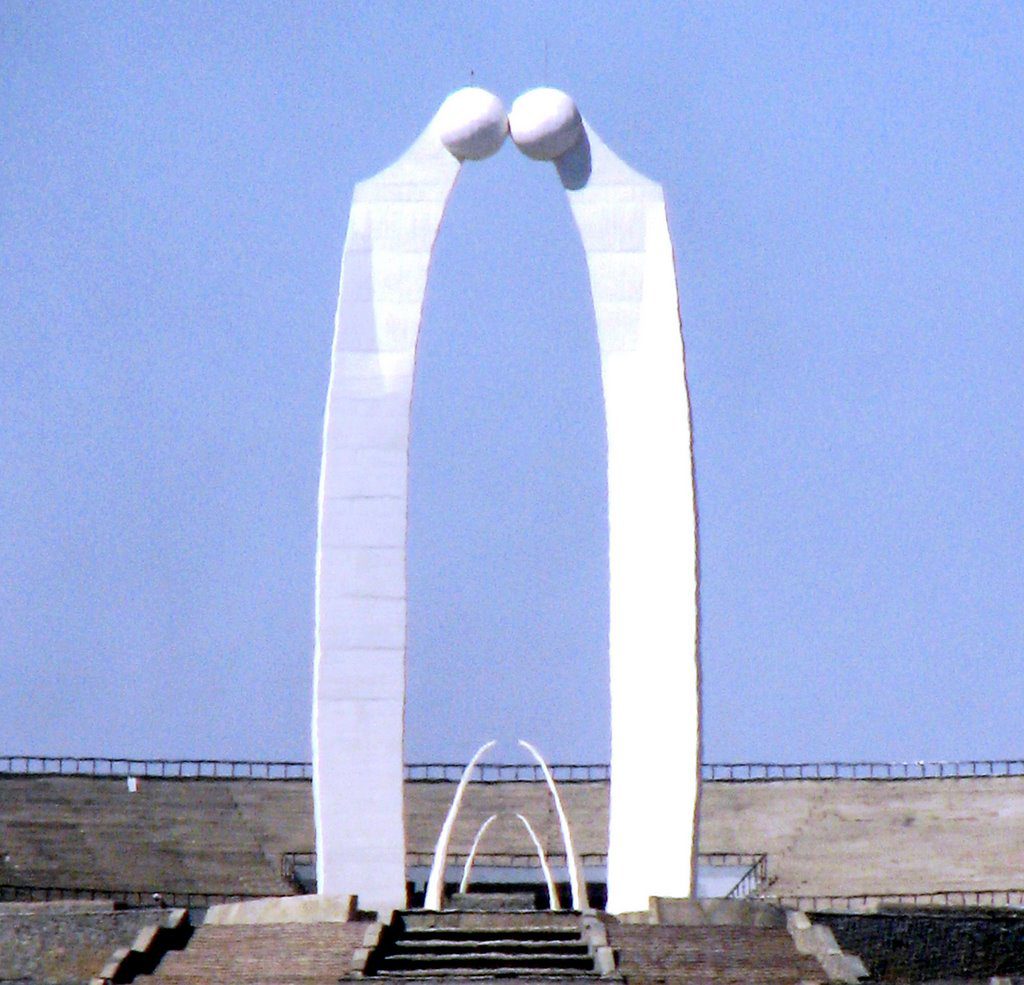This article was originally published in The Ethiopian Messenger, the quarterly magazine of the Embassy of Ethiopia in Brussels.
The cancelation of the Addis Ababa Master Plan following demonstrations in the Oromia region should not prevent us from loosing sight of the broader picture. The region of Oromia is the master of its own path and has the necessary tools to accelerate its own development.
Following the collapse of the military regime in 1991, the Oromia Regional State was established as one of the federal states constituting Ethiopia. Since then, the Regional Government of Oromia has been striving to carry out a rapid and sustainable development throughout the region. A strong foundation of democracy was built by the Regional Government in order to create conducive environment for its people. Moreover, promoting the culture, the language and the history of the people has been one of its fundamental objectives. Nowadays in Ethiopia, the Oromo people has unconditional right to self- determination, the right to speak, write, and to develop its own language.

As enshrined in the Article 39 of the Constitution of the Federal Democratic Republic of Ethiopia, the people have the right to preserve their history and to express, develop, and promote their culture. Under the incumbent government, the region is administered by its own inhabitants. Similarly, the Afaan Oromo language, which was only confined to private use during both the past imperial and military regime, is currently the official working language of the region. The remarkable progress made in the region’s social, economic and political sectors in the last 25 years is due to unwavering commitments of Oromia Regional government and the contribution of the public at large.
One of the main reasons for the major achievements over the years is the introduction of clear policies and strategies aiming at enabling the rapid socio-economic transformation of the society. Tremendous achievement has been registered through rural and urban development strategies. Due to these and other efforts of the Government, notable changes can be seen in the lives of the population and promising results are regularly registered in terms of economic development. But the introduction of clear policies and strategies is not the sole cause of this impressive progress. Without public participation and the domestication of development programs, all the aforementioned results would not have been achieved. The ruling party has been well aware of this from the first day in the office. Since then, the intention and will of the Government is to ensure that all Ethiopians get equal opportunity to improve their economic situation and to promote equitable distribution of wealth among them and finally to bring consensus and building a political and economic community by ensuring lasting peace, guarantying a democratic order, and advancing economic and social development as stipulated in the Constitution. For instance, the Addis Ababa-Oromia integrated master plan is a good example of the attention paid to the socio-political and economic development of the people. According to Article 89/6 of the Federal Government Constitution Economic objectives, “Government shall at all times promote the participation of the people in the formulation of national development policies and programs; it shall also have the duty to support the initiative of the people in their development endeavors.”
The Addis Ababa-Oromia integrated master plan aligns with the context of the Constitution. Thus, this article is indicative of the emphasis given by the government to people’s right to get access to information which basically emanates from developmental governments firms, as provided by the Constitution. The Addis Ababa integrated master plan was a work in progress and at its initial stage when the peaceful demonstration against the master plan started in 13 Nov 2016 near to Ambo city and its surroundings. However, the demonstration gradually changed its form and led to the destruction of public and private properties and loss of human life.
From 23 to 27 February 2016, following the violent demonstration in some parts of Oromia regional state of Ethiopia, the Oromo People’s Democratic Organization (OPDO), one of the coalition member of the ruling party, held thorough discussions in the city of Adama. The main points of discussion included the situation of the Oromia region, good governance, democratization, rent seeking practices and issues related to unemployment of young generation. The OPDO has renewed its commitments for its people to solve the challenges raised during the discussion. In addition to this, the ruling party has also taken actions on corrupt officials in the region. More than eight hundred officials were dismissed and will be held accountable for their wrongdoings.

Currently, the Oromia Regional State has unveiled a project worth 2.4 billion birr (about 100 million euros) to fight unemployment in the State. Out of this, a project worth 300 million birr (about 12 million euros) that could create jobs for 832,000 young people will be implemented within the coming months. The project will help to consistently alleviate unemployment in the State on the short and long term. During the announcement of the project, Redwan Hussein, Minister for Youth and Sports, said that the National Council, which was established by encompassing 17 institutions to assist job creation activities, will offer support for the success of the project. The discourse and speeches of officials of the region also indicate that while they take pride in the progress that has been made, they are acutely aware of the massive challenges that lay ahead.
Today, after a long struggle, the Oromo people who were coerced and denied their right under past regimes have obtained justice under the current Constitution. As a consequence, the current major issues are economic and not political, especially for the younger generation. As a nation, the Oromo
people have came a long way in the last 25 years, yet it has some unfinished businesses to realize. But a better future cannot be achieved if the current stability is lost. More than anyone else in the region, the Oromia region has learned from its own history how peace and stability are essential. The people has to maintain, nurture and develop the peace and security that it has in its hand. There is no development without peace and there is no lasting peace without development. The people is a master of its destiny; and to chart its future.



